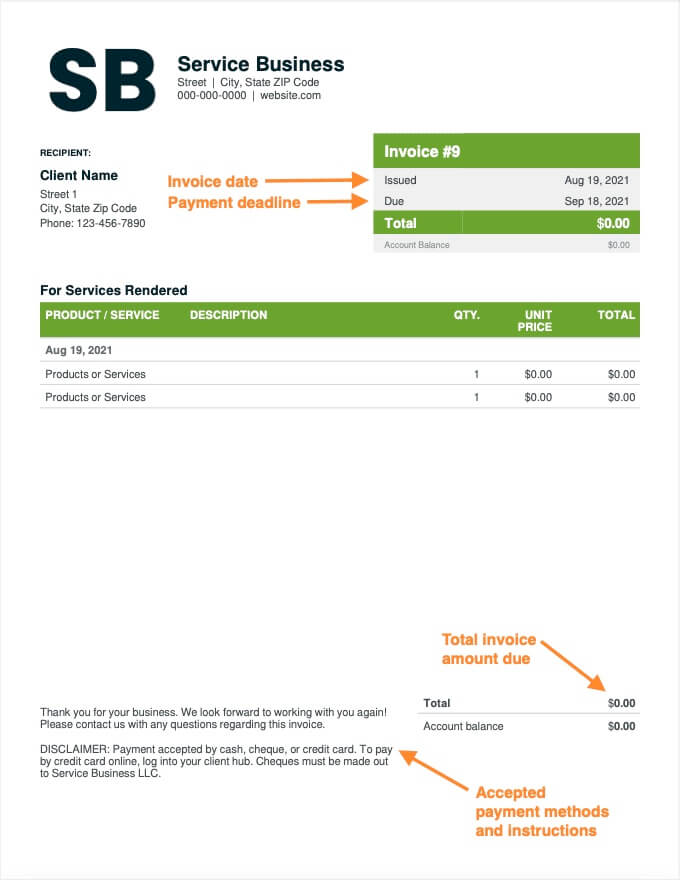Unlocking Your Earning Potential as a Writer
The demand for high-quality content has never been higher, with businesses, websites, and publications all seeking skilled writers to create engaging and informative content. As a writer, you have a valuable skillset that can be monetized in a variety of ways. Whether you’re looking to supplement your income or build a full-time career, understanding how to get paid to write is essential. The good news is that there are numerous opportunities available for writers to earn a living, from freelance writing and content mills to specialized writing niches and online publishing platforms.
One of the key factors in unlocking your earning potential as a writer is identifying your niche. What type of writing do you enjoy most? What are your areas of expertise? By focusing on a specific niche, you can differentiate yourself from other writers, build a strong reputation, and attract high-paying clients. For example, if you have a background in technology, you may want to consider specializing in technical writing. Similarly, if you have a passion for marketing, you may want to explore copywriting or content marketing.
Another important consideration is the type of writing you want to do. Do you prefer writing articles, blog posts, or website content? Are you interested in writing for businesses, publications, or websites? By understanding your writing preferences and strengths, you can target the most lucrative opportunities and build a successful writing career. With the rise of online content, there are now more opportunities than ever for writers to get paid for their work. Whether you’re just starting out or looking to take your writing career to the next level, understanding how to monetize your writing skills is crucial.
So, how can you get paid to write? The answer is simpler than you think. By identifying your niche, building a strong portfolio, and targeting the right opportunities, you can start earning a living as a writer. In the following sections, we’ll explore the various ways you can monetize your writing skills, from freelance writing and content mills to specialized writing niches and online publishing platforms.
Freelance Writing: Getting Started with Platforms and Marketplaces
Freelance writing is a popular way for writers to monetize their skills and work on a variety of projects. With the rise of online platforms and marketplaces, it’s easier than ever to find freelance writing work. Upwork, Freelancer, and ProBlogger are just a few examples of popular platforms that connect writers with clients. These platforms offer a range of benefits, including access to a large pool of potential clients, flexible working arrangements, and the opportunity to build a portfolio of work.
To get started with freelance writing, it’s essential to create a strong profile on these platforms. This includes showcasing your writing skills, experience, and portfolio. A well-written profile will help you stand out from the competition and attract potential clients. Additionally, it’s crucial to develop a pitch that highlights your strengths and showcases your writing style. This will help you to effectively market yourself to clients and increase your chances of landing writing projects.
Delivering quality work is also critical to success as a freelance writer. This means meeting deadlines, following client instructions, and producing high-quality content. By building a reputation for delivering excellent work, you can attract repeat business and referrals, which can help to grow your freelance writing career. Furthermore, it’s essential to understand the terms and conditions of each platform, including payment rates, contract terms, and any fees associated with using the platform.
For those looking to get paid to write, freelance writing platforms offer a range of opportunities. From writing articles and blog posts to creating website content and social media posts, there are many types of writing projects available. By leveraging these platforms and building a strong profile, writers can increase their earning potential and establish a successful freelance writing career.
Some popular freelance writing platforms to consider include:
- Upwork: A platform that connects writers with clients in a range of industries, including technology, healthcare, and finance.
- Freelancer: A platform that offers a range of freelance writing projects, including article writing, blog writing, and website content creation.
- ProBlogger: A platform that connects writers with clients in the blogging and online publishing industries.
By getting started with these platforms and building a strong profile, writers can take the first step towards establishing a successful freelance writing career and getting paid to write.
Content Mills and Online Publishing: Understanding the Opportunities and Challenges
Content mills and online publishing platforms have become increasingly popular in recent years, offering writers a range of opportunities to get paid for their work. These platforms connect writers with clients who need high-quality content, often on a large scale. Textbroker, iWriter, and Medium are just a few examples of popular content mills and online publishing platforms.
One of the main benefits of writing for content mills and online publishing platforms is the potential for high earnings. Many of these platforms offer competitive pay rates, often based on the quality and quantity of content produced. Additionally, these platforms often provide writers with access to a large pool of potential clients, making it easier to find work and build a portfolio.
However, there are also challenges to consider when writing for content mills and online publishing platforms. One of the main drawbacks is the often-low pay rates, particularly for entry-level writers. Additionally, these platforms often have strict content guidelines and quality standards, which can be difficult to meet. Furthermore, writers may face intense competition from other writers, making it difficult to stand out and secure high-paying projects.
To succeed as a writer on content mills and online publishing platforms, it’s essential to understand the terms and conditions of each platform. This includes pay rates, contract terms, and any fees associated with using the platform. Additionally, writers should be aware of the content guidelines and quality standards, and be prepared to produce high-quality content that meets these standards.
Some popular content mills and online publishing platforms to consider include:
- Textbroker: A platform that connects writers with clients who need high-quality content, often on a large scale.
- iWriter: A platform that offers writers a range of opportunities to produce high-quality content, often for clients in the business and finance sectors.
- Medium: A platform that connects writers with clients who need high-quality content, often on a range of topics, including technology, culture, and politics.
By understanding the opportunities and challenges of writing for content mills and online publishing platforms, writers can make informed decisions about how to monetize their skills and get paid to write.
For those looking to get paid to write, content mills and online publishing platforms offer a range of opportunities. By leveraging these platforms and producing high-quality content, writers can increase their earning potential and establish a successful writing career.
Building a Personal Brand: Establishing Yourself as a Professional Writer
Establishing a strong personal brand is essential for writers who want to get paid for their work. A personal brand is a unique identity that sets you apart from other writers and helps you to establish a reputation in the industry. By building a strong personal brand, you can attract potential clients, increase your earning potential, and establish a successful writing career.
One of the most important steps in building a personal brand is creating a professional website or blog. This will serve as a central hub for your writing services, and will provide potential clients with a way to learn more about your skills and experience. Your website or blog should include a portfolio of your work, as well as information about your writing services and rates.
In addition to a website or blog, it’s also important to establish a social media presence. This will help you to connect with potential clients, promote your writing services, and stay up-to-date with industry trends. Some popular social media platforms for writers include Twitter, LinkedIn, and Facebook.
Networking with other writers and potential clients is also an important part of building a personal brand. This can be done through attending writing conferences and workshops, joining writing groups and organizations, and participating in online communities and forums. By building relationships with other writers and potential clients, you can establish a reputation as a professional writer and increase your earning potential.
Some tips for building a strong personal brand include:
- Define your niche: Identify the type of writing you want to specialize in, and focus on building a reputation in that area.
- Create a unique value proposition: Develop a statement that explains what sets you apart from other writers, and use it to promote your writing services.
- Develop a consistent brand voice: Use a consistent tone and style in your writing and online presence, to help establish a strong brand identity.
- Engage with your audience: Respond to comments and messages, and engage with potential clients and other writers on social media.
By building a strong personal brand, you can establish a successful writing career and get paid for your work. Remember to stay focused on your goals, and continually work on building and promoting your brand.
Specialized Writing: Exploring Lucrative Niches and Opportunities
Specialized writing is a lucrative niche that can help writers get paid for their work. There are several types of specialized writing, including technical writing, copywriting, and ghostwriting. These niches require specific skills and expertise, but can offer high earning potential for writers who are willing to invest the time and effort to develop their skills.
Technical writing is a type of specialized writing that involves creating user manuals, instruction guides, and other documentation to help people understand complex technical information. Technical writers are in high demand, particularly in industries such as software development, engineering, and biotechnology. To become a technical writer, you will need to have a strong understanding of technical concepts and be able to communicate complex information in a clear and concise manner.
Copywriting is another type of specialized writing that involves creating persuasive content to promote products or services. Copywriters are responsible for crafting compelling headlines, writing engaging product descriptions, and developing marketing campaigns that drive sales. To become a copywriter, you will need to have a strong understanding of marketing principles and be able to write persuasive content that resonates with your target audience.
Ghostwriting is a type of specialized writing that involves creating content for others, such as books, articles, and blog posts. Ghostwriters are often hired by businesses, entrepreneurs, and thought leaders who need high-quality content but don’t have the time or expertise to create it themselves. To become a ghostwriter, you will need to have a strong understanding of your client’s needs and be able to create content that meets their expectations.
Some tips for getting started in specialized writing include:
- Identify your niche: Determine which type of specialized writing you want to pursue and focus on developing your skills and expertise in that area.
- Develop your skills: Take courses, attend workshops, and read books to learn more about your chosen niche and develop your skills.
- Build your portfolio: Create a portfolio of your work to showcase your skills and expertise to potential clients.
- Network with other writers: Join writing groups and attend writing conferences to connect with other writers and learn more about the industry.
By specializing in a particular type of writing, you can increase your earning potential and establish a successful writing career. Remember to stay focused on your goals and continually work on developing your skills and expertise.
Getting Paid to Write: Understanding Rates, Contracts, and Invoicing
As a freelance writer, understanding rates, contracts, and invoicing is crucial to getting paid for your work. Rates refer to the amount of money you charge for your writing services, while contracts outline the terms and conditions of your work. Invoicing is the process of requesting payment from clients for your services.
When it comes to rates, there are several factors to consider. These include the type of writing you are doing, the length and complexity of the project, and the client’s budget. It’s essential to research the market and understand what other writers are charging for similar services. This will help you to set competitive rates and ensure that you are getting paid fairly for your work.
Contracts are also an essential part of getting paid to write. A contract outlines the terms and conditions of your work, including the scope of the project, the deadline, and the payment terms. It’s essential to have a contract in place before starting any project, as it will protect both you and the client in case of any disputes.
Invoicing is the final step in getting paid to write. Once you have completed a project, you will need to send an invoice to the client requesting payment. The invoice should include the amount of money you are charging, the payment terms, and any other relevant details.
Some tips for getting paid to write include:
- Set clear rates and payment terms: Make sure you understand what you are charging and when you expect to be paid.
- Create a contract: Outline the terms and conditions of your work to protect both you and the client.
- Send professional invoices: Include all relevant details, such as the amount of money you are charging and the payment terms.
- Follow up on payments: If a client is late with payment, follow up with them to ensure that you get paid.
By understanding rates, contracts, and invoicing, you can ensure that you get paid for your writing services. Remember to stay professional and communicate clearly with your clients to avoid any disputes.
Marketing Your Writing Services: Attracting Clients and Growing Your Business
As a writer, marketing your writing services is crucial to attracting clients and growing your business. There are several ways to market your writing services, including creating a portfolio, leveraging social media, and utilizing online directories and job boards.
Creating a portfolio is an essential step in marketing your writing services. A portfolio showcases your writing skills and experience, and provides potential clients with a way to evaluate your work. Your portfolio should include a variety of writing samples, including articles, blog posts, and other types of content.
Leveraging social media is another effective way to market your writing services. Social media platforms such as Twitter, LinkedIn, and Facebook provide a way to connect with potential clients and promote your writing services. You can use social media to share your writing samples, provide updates on your writing projects, and engage with potential clients.
Utilizing online directories and job boards is also an effective way to market your writing services. Online directories such as ProBlogger and Freelance Writing Jobs provide a way to connect with potential clients and promote your writing services. You can also use online job boards such as Upwork and Freelancer to find writing projects and promote your services.
Some tips for marketing your writing services include:
- Create a strong portfolio: Showcase your writing skills and experience to attract potential clients.
- Leverage social media: Use social media platforms to connect with potential clients and promote your writing services.
- Utilize online directories and job boards: Use online directories and job boards to connect with potential clients and find writing projects.
- Develop a unique value proposition: Develop a unique value proposition that sets you apart from other writers and attracts potential clients.
By marketing your writing services effectively, you can attract clients and grow your business. Remember to stay focused on your goals and continually work on developing your marketing strategy.
Continuing Education and Professional Development: Staying Ahead in the Writing Industry
The writing industry is constantly evolving, with new trends, technologies, and techniques emerging all the time. To stay ahead in the industry and continue to get paid to write, it’s essential to prioritize ongoing education and professional development.
One way to stay up-to-date with industry trends is to attend workshops and conferences. These events provide a great opportunity to learn from experienced writers and industry experts, and to network with other writers and potential clients.
Pursuing certifications or further education is also an excellent way to advance your writing career. Consider enrolling in a writing course or certification program to develop your skills and expertise in a specific area of writing.
Staying current with industry publications and blogs is also crucial. Follow reputable sources and stay informed about the latest developments in the writing industry.
Some tips for continuing education and professional development include:
- Set aside time each week to learn something new: Whether it’s reading a book, attending a webinar, or taking an online course, make sure to prioritize ongoing education and professional development.
- Network with other writers: Attend writing events, join writing groups, and connect with other writers on social media to stay informed about industry trends and best practices.
- Pursue certifications or further education: Consider enrolling in a writing course or certification program to develop your skills and expertise in a specific area of writing.
- Stay current with industry publications and blogs: Follow reputable sources and stay informed about the latest developments in the writing industry.
By prioritizing ongoing education and professional development, you can stay ahead in the writing industry and continue to get paid to write. Remember to stay focused on your goals and continually work on developing your skills and expertise.







